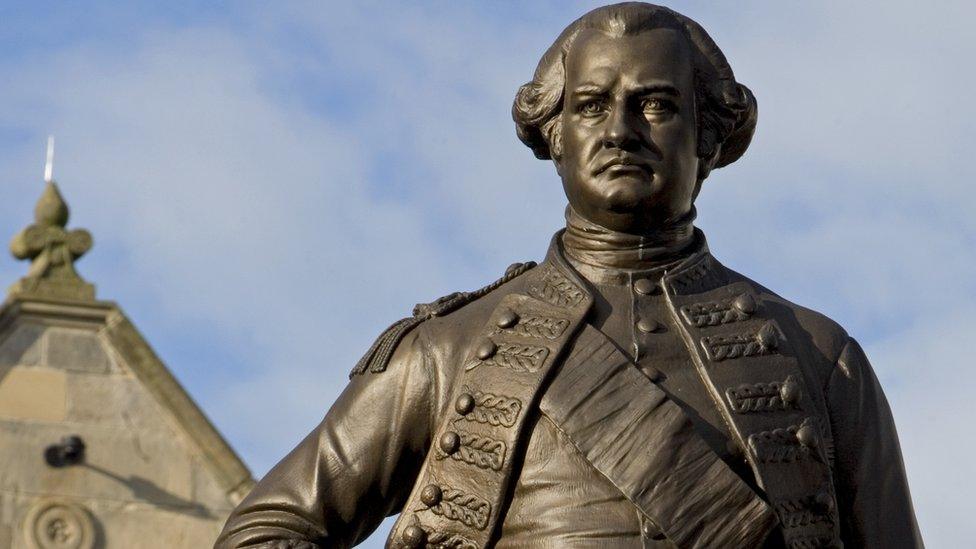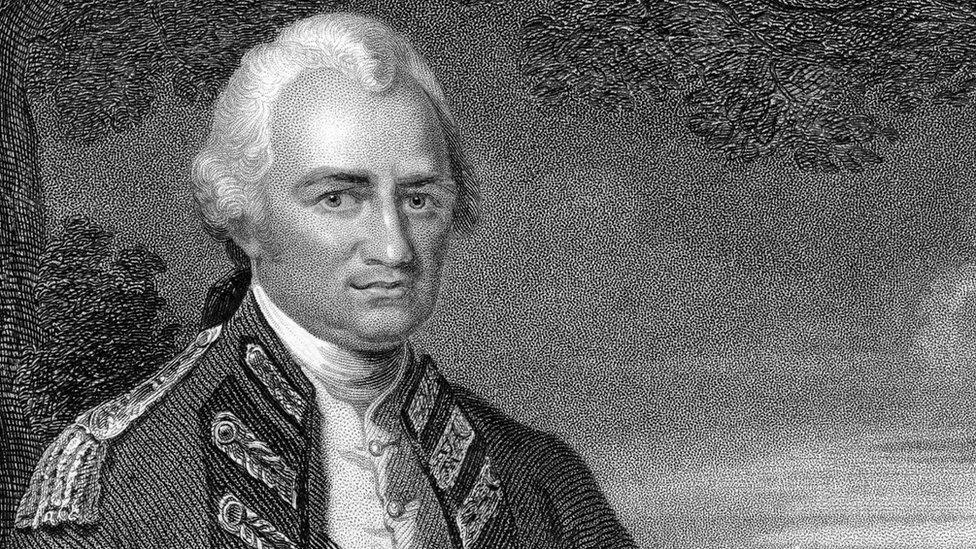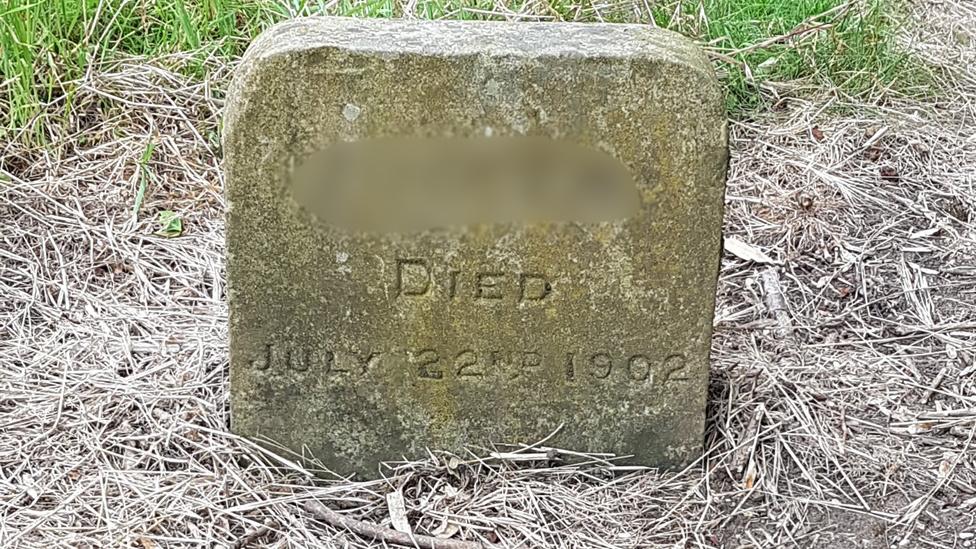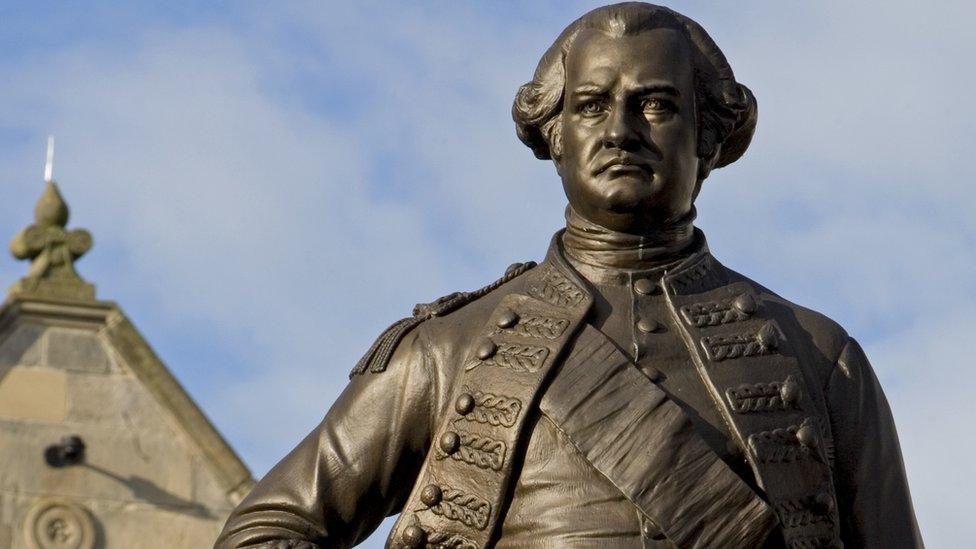Clive of India: 'Demoralising' decision to keep 'racist' statue
- Published

The monument has stood in Shrewsbury's square since 1860
A decision to leave a "racist" statue standing in a town centre due to red tape is "demoralising" and "beggars belief", a campaigner says.
Shropshire Council voted in favour of no further action following a petition to remove the Shrewsbury town centre Clive of India statue.
Two petitions calling for the statue's removal had 23,000 signatures between them.
The council said removing the statue would be hard as it is Grade II listed.
Steve Charmley, deputy leader and portfolio holder for assets, economic growth and regeneration, said the monument, which has stood in Shrewsbury's square since 1860, is listed and would require a lot of consultation with Historic England to remove it.
He also said an information board giving more history about Clive's life would not be allowed due to its listed status.
The local authority's Conservative leader Peter Nutting said it should stay and argued there was also a statue of him in Kolkata (Calcutta).
At the full council meeting, 28 councillors voted in favour of the recommendation of no further action on the removal of the statue.
Seventeen voted against the proposal and one abstained.
Although not directly linked to slavery, Robert Clive is widely credited with engineering British colonial rule in India and has faced scathing reviews from some historians.
Looting was widespread as the East India Company brought more parts of the country under British control and while millions died in the Bengal Famine of 1770, Clive returned to Britain a wealthy man.
David Parton, who created one of the petitions, said he was "shocked" by the absence of the feelings toward minority communities.
"Only the complete removal of the statue will show the council is serious about racism.
"Clive will fall, it's not a matter of if, but when. It beggars belief we have to argue this when his legacy resulted in millions of deaths. It's quite demoralising, this decision."
Mr Parton said the argument the council had made about it being hard to remove "holds no water".
"It is vital we learn from our past, but we should not have to live in it," he added.
A counter petition was also signed by more than 8,000 people, saying removing it would erase part of the town's history.

Follow BBC West Midlands on Facebook, external, Twitter, external and Instagram, external. Send your story ideas to: newsonline.westmidlands@bbc.co.uk , external
- Published9 July 2020

- Published8 July 2020

- Published3 July 2020

- Published9 June 2020
